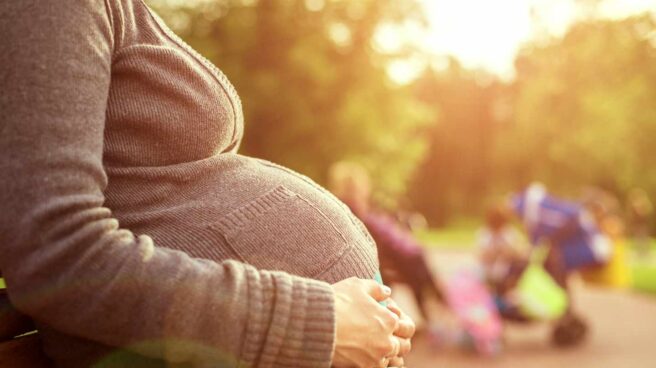

Pregnant woman.
pregnant, Do you drink And children warned about “extreme” health risks This is due to climate disasters, according to a statement issued by UN organizations on Tuesday ahead of the Climate Change Summit (Conference of the Parties, COP28) to be held in Dubai, United Arab Emirates.
According to the document Protect maternal, newborn and child health from the impacts of climate changeThe impact of climate events on maternal and child health has been ignored, underreported and underestimated. It highlights that “very few countries’ climate change response plans” mention maternal and child health, which it describes as “a glaring and symbolic omission of insufficient attention to the needs of women, newborns and children in climate change discussions.” The press reports.
“Climate change poses an existential threat to us all, but pregnant women, babies and children face some of the greatest impacts of all,” said Bruce Aylward, deputy director-general of the World Health Organization’s Universal Health Coverage and Life Cycle Division. WHO).
“Children’s future must be consciously protected, which means taking climate action now for their health and survival, while ensuring their unique needs are recognized in the climate change response,” he said.
The year 2023 has seen a series of climate disasters such as wildfires, floods, heat waves and droughts, leading to displacement of people, loss of crops and livestock, and more air pollution. Global warming is contributing to the spread of deadly diseases such as cholera, malaria and dengue fever, with dire consequences for pregnant women and children, for whom these infections can be especially serious.
Damage may begin in the uterus
Research shows that damage can begin in the womb, leading to pregnancy-related complications, premature birth, low birth weight and stillbirth. For children, the effects can last a lifetime, affecting the development of their bodies and brains as they grow.
“Climate change efforts often ignore the fact that children’s bodies and minds are especially vulnerable to pollution, deadly diseases and extreme weather,” said Omar Abdi, Deputy Executive Director of Programs at UNICEF. “The climate crisis threatens every child’s fundamental right to health and well-being. It is our collective responsibility to listen to children and put them at the center of urgent climate action, starting with COP28. Now is the time to finally include children in the climate change agenda,” he said.
This document highlights seven urgent actions to address these growing risks. These include sustainable reductions in greenhouse gas emissions and action on climate finance, and, in particular, mainstreaming the needs of pregnant women, babies and children into climate policy and climate disasters. The agencies are also calling for more research to better understand the impact of climate change on maternal and child health.
Climate Solutions
“To find climate solutions that address the specific health needs and vulnerabilities of women and girls, we must start by asking the right questions,” said Dien Keita, deputy executive director of programs at UNFPA, a UN agency. and reproductive health. “Global climate solutions must support gender equality,” he added.
The call to action was released by WHO, UNICEF and UNFPA at a launch event along with the advocacy report of the Partnership for Maternal, Newborn and Child Health (PMNCH). The PMNCH advocacy document reinforces the Call to Action by making specific recommendations for a variety of stakeholders, including governments, global financial mechanisms, donors and foundations, the private sector and civil society, to ensure greater attention to the health needs of women, children and adolescents. be considered in climate-related policies, finance and programs.
“Climate change is one of the great intergenerational injustices of our time. Protecting the health and rights of women, children and adolescents is non-negotiable in the face of the climate crisis,” said Helen Clark, PMNCH Board President and former Prime Minister of New Zealand.
All stakeholders, from governments to the private sector and civil society, including health professionals, play a critical role in advocating for policies and measures that protect the most vulnerable. Urgently integrating the health needs of women, children and adolescents into the response to climate change is not only a moral imperative, but also an effective strategy with long-term benefits for sustainable and healthy societies.
During COP28, delegates will celebrate Health Day for the first time, highlighting the inextricable link between people’s health and the planet.
Source: El Independiente